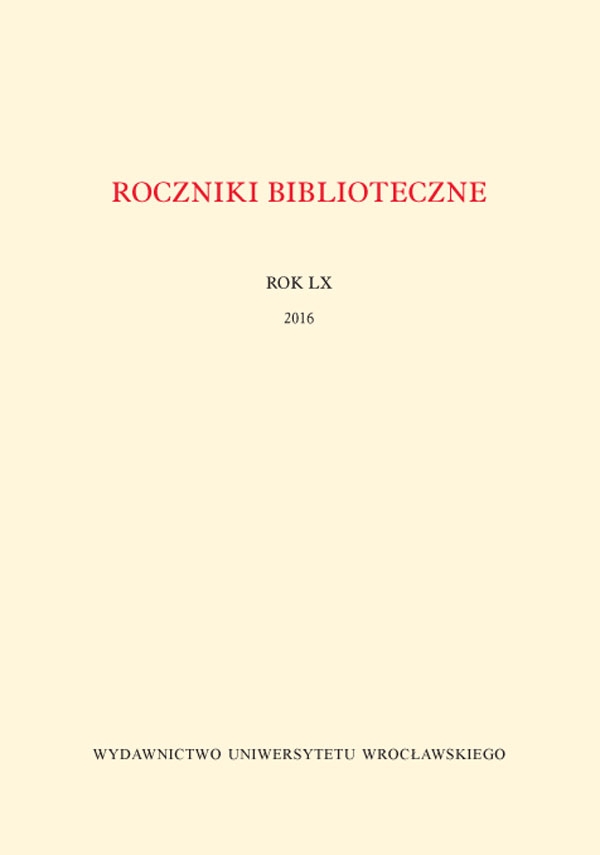

Articles and materials

OLD INFORMATION SPACES. WHAT DO WE LOSE DUE TO INAPPROPRIATE AUTOMATISATION OF DERIVATIVE SOURCES OF INFORMATION?
The belief that the very fact that information has been made available in the dynamic internet environment is enough for the users to find it may lead to very serious misunderstandings. Hence the importance of the reflection on what we lose because of careless and ill-considered automatisation of derivative sources of information bibliographies/catalogues, dictionaries, encyclopaedias. Admiration for modern technologies has, on the one hand, made us abandon the huge informational value of the higher level of data organisation Googlisation and granulation required by the printed form of such sources and on the other it has led to a situation in which we fail to use the potential of these technologies, impossible to realise in the printed form skeuomorphism. This leads to the disappearance of the additive nature of the information contained in them and its spread, heuristic impotence stemming from the seemingly intuitive nature of the handling of the source as well as the loss of the archival image of the state of affairs at a given time and place, hitherto guaranteed by the durable printed form. All these processes cause a loss of non-tool-related knowledge. The author uses examples to demonstrate the losses — perhaps irrevocable — to the specialist information toolkit and ways of preventing them. The paper is preceded by a short overview of positions concerning the relations between the terms “automatisation” and “digitisation”.